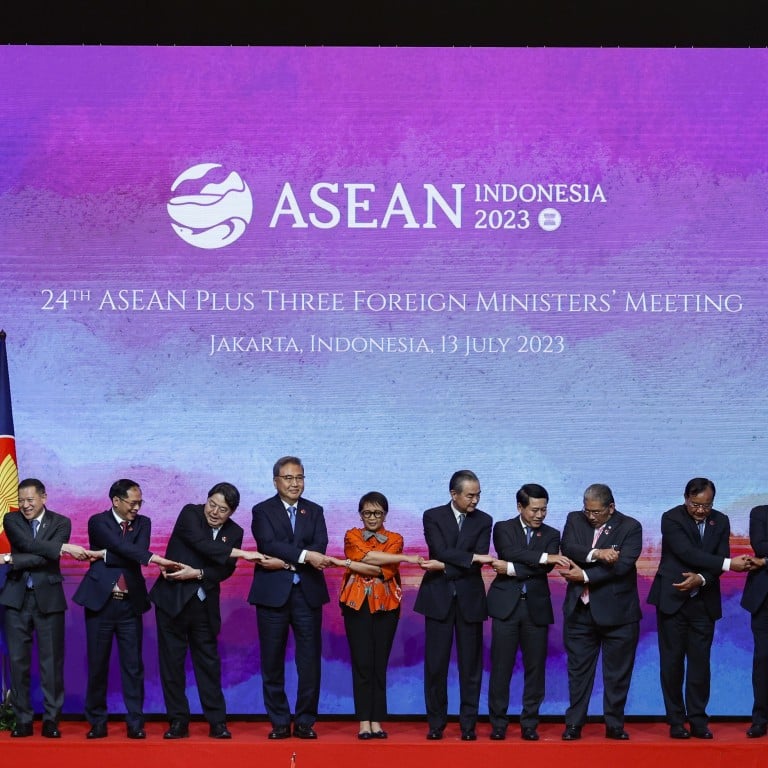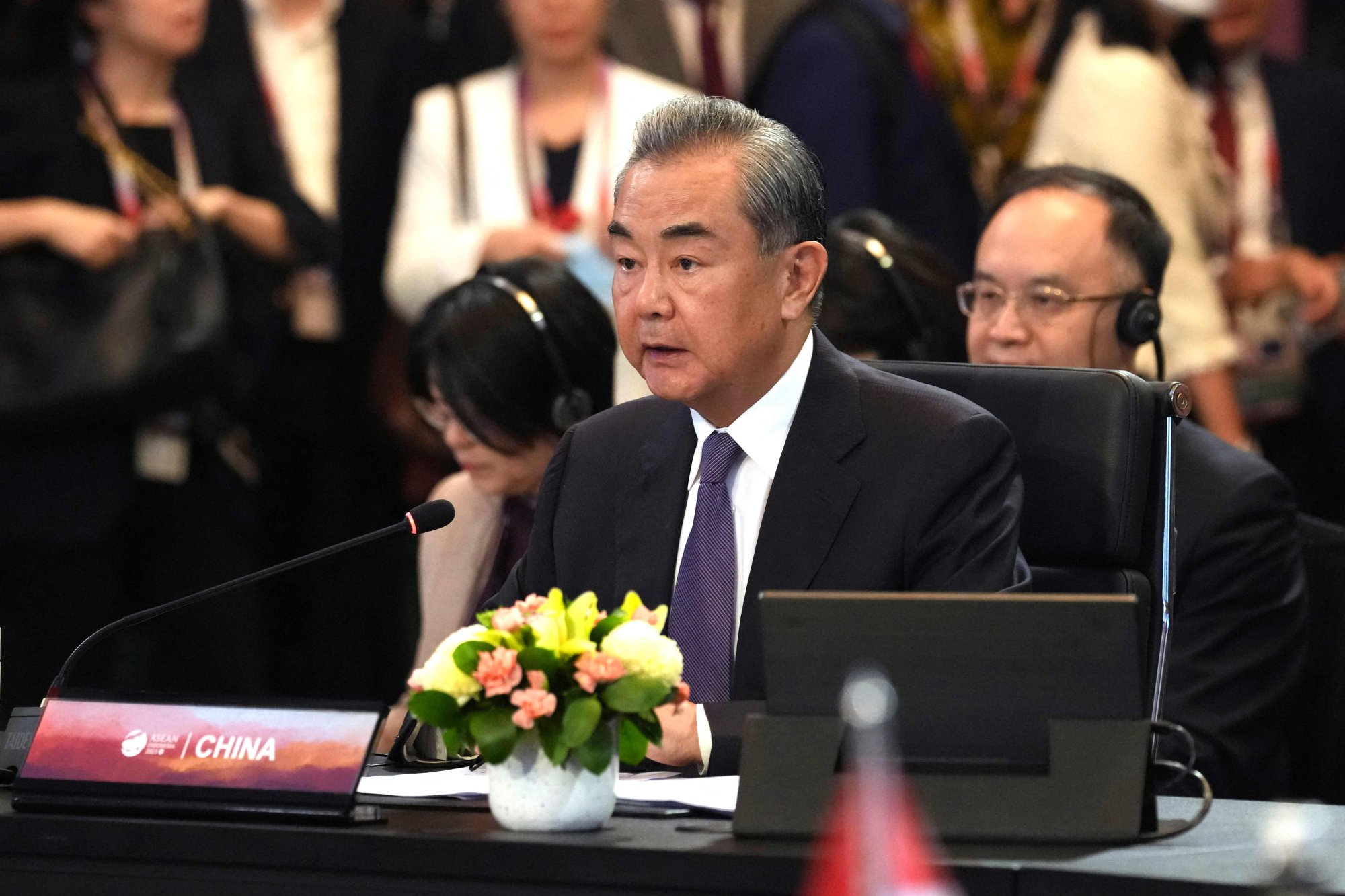
China’s top diplomat backs Hong Kong membership of world’s biggest trading bloc at Jakarta summit for regional foreign ministers
- Wang Yi, mainland China’s foreign policy chief, tells foreign ministers’ meeting city should be in the 15-nation Regional Comprehensive Economic Partnership
- He adds China supported construction of ‘stable, smooth and comparative advantage-based regional production and supply chain system’
Beijing’s top diplomat has thrown his weight behind Hong Kong’s entry to the world’s largest trade bloc at a meeting of Southeast Asian foreign ministers in Indonesia, a move analysts have said would give a boost to city leader John Lee’s business talks on a visit to three countries in the region later this month.
He also appealed to the Association of Southeast Asian Nations, Japan and South Korea to uphold “openness and cooperation” to accelerate regional integration at the Asean Plus Three (APT) foreign ministers’ meeting in Indonesia’s capital Jakarta.
“Taking the full entry into force of RCEP as an opportunity, we support Hong Kong’s accession to RCEP as one of the first batch of members,” Wang, the director of the Office of the Central Commission for Foreign Affairs, told the meeting.
“China supports the construction of a stable, smooth and comparative advantage-based regional production and supply chain system.”

He proposed three directions for the next stage of APT cooperation to construct “a stronger East Asian community” for the world’s economic recovery, a reference to the APT Cooperation Work Plan drawn up to guide regional cooperation over the next five years.
The RCEP, which took effect on January 1, 2022, includes a third of the world’s population and about 30 per cent of its global gross domestic product.
It has been regarded as an alternative to the Comprehensive and Progressive Agreement for Trans-Pacific Partnership, led by the United States.
“The top diplomat’s support could inject confidence among the Asean countries, facilitating potential business talks between Lee’s delegation and their counterparts,” Chong, the executive director of the university’s Lau Chor Tak Institute of Global Economics and Finance, said.
A high-level trade delegation, led by Lee, will visit Singapore, Malaysia and Indonesia later this month to forge close ties with Asean members.
Hong Kong’s John Lee gears up for Asean trade trip as exports remain in slump
Chong said Hong Kong’s professional services and technology sectors would benefit if some key parts that required advanced technologies were shifted to the city.
He added that Hong Kong could tap into opportunities to develop into a regional data hub to serve businesses based in the high-growth Asean area that were interested in the Chinese market and facilitate mainland enterprise in the region.
Professor Linda Li Chelan, a political scientist at City University’s department of public policy, predicted Hong Kong’s accession to the trade bloc could support the nation’s development amid continued tensions with the United States.
“The economic benefits to be brought about by strengthened regional collaborations are expected to help Beijing mitigate risks, especially when China’s economic development has obviously become a crisis,” she said.
Li, who recently traveled to Jakarta for research work, said government officials and businesses in Asean countries generally welcomed funds from Hong Kong as “high-quality investments” in line with their policy blueprints.
She appealed to Hong Kong businesses to seize the chance to explore emerging markets, which had young, tech-savvy populations and a rising demand for goods and services.
Hong Kong’s John Lee ‘to lead delegation’ to Singapore, Malaysia and Indonesia
Wang also highlighted “common security” at the summit and appealed to the region to keep improving the effectiveness of crisis response to better safeguard the food supply chain.
He added that the region should also boost innovation and embrace the potential of sustainable development, including an electric vehicle ecosystem.
Wang also asked Japan to “think twice” before it dumped nuclear-contaminated waste water from the wrecked Fukushima power plant into the ocean, which he said had a bearing on the safety of the marine environment and human health.
Hong Kong’s bid to join the RCEP trade bloc must also win the approval of member states.
The RCEP agreement covers Brunei, Cambodia, Indonesia, Laos, Malaysia, Myanmar, the Philippines, Singapore, Thailand, and Vietnam, as well as Asean’s five major trading partners China, Japan, South Korea, Australia and New Zealand.
Asean was Hong Kong’s second-largest trading partner for merchandise in 2022, amounting to HK$1.29 trillion (US$166 billion). The city remains a key link between Asean members and the mainland.
Re-export trade between the two economies through Hong Kong amounted to HK$617 billion last year.

